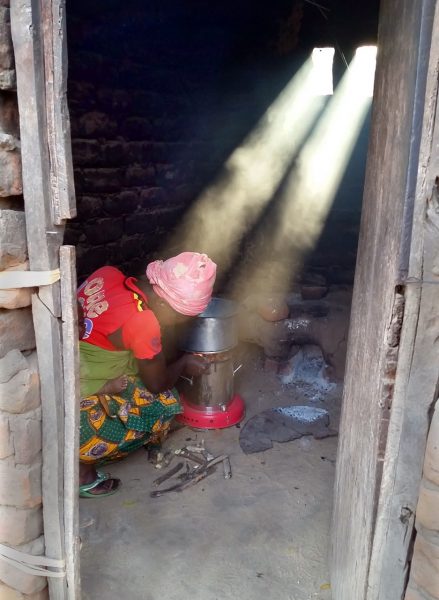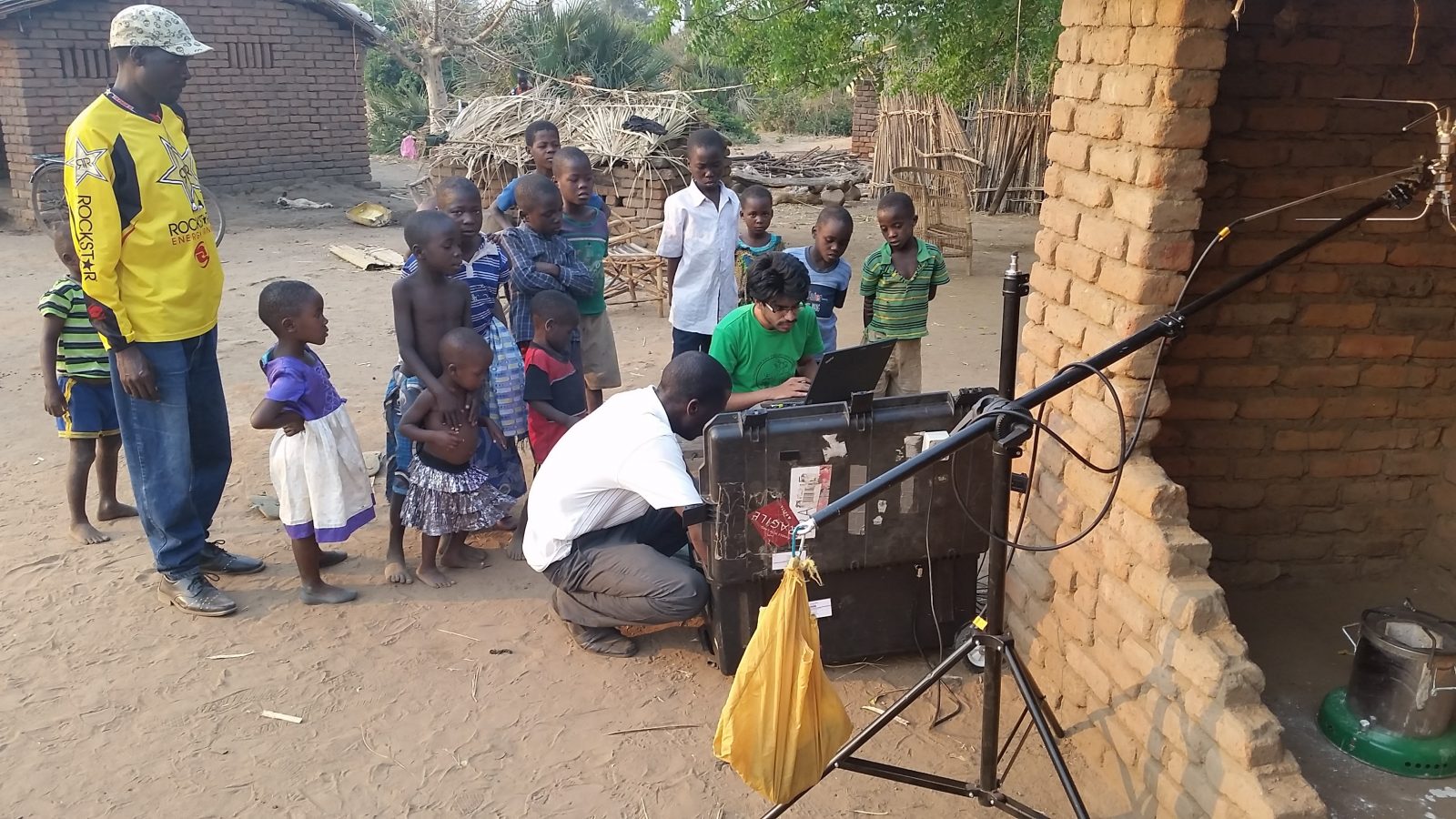Nearly three billion people, and the vast majority of the residents of sub-Saharan Africa, burn wood and other biomass for cooking, heating and lighting. Emissions from these fires have huge impacts on human health, the environment and the climate. Improved ‘gasifier’ cookstoves hold great potential for reducing black carbon (BC) emissions, one of the pollutants which has especially strong climate and air pollution impacts.
Building on a body of collaborative laboratory and field research that has focused on cookstove replacement programs in rural India, Dr. Andy Grieshop and PhD student Roshan Wathore conducted cookstove emission testing in rural Malawi during September of 2015. They spent several weeks establishing relationships with villagers and performing tests in over 25 homes and an orphanage. Grieshop and Wathore built mobile, battery-powered equipment to measure various pollutants including black carbon particles. Unfortunately preliminary results suggest that the stoves are not performing as well in Malawian households as they have in controlled laboratory tests. Identifying the technical and human challenges associated with adoption of new technologies will provide continuing insights into how to address this pervasive and complex global issue. “It may be as simple as insuring the end user understands the fuel has to be chopped up into smaller pieces to make the stoves work efficiently,” Grieshop speculates. Ongoing research in this area is being conducted by Grieshop’s team.
The study in Malawi was performed in collaboration with Dr. Kevin Mortimer from the Liverpool School of Tropical Medicine, and the international non-profit organization Concern Universal.


